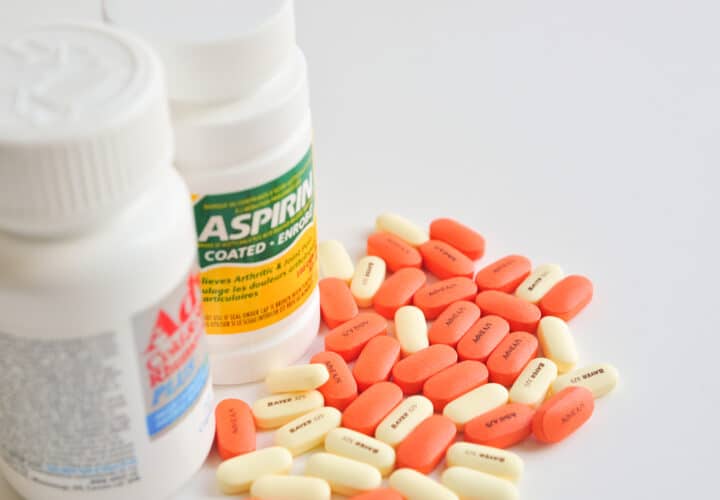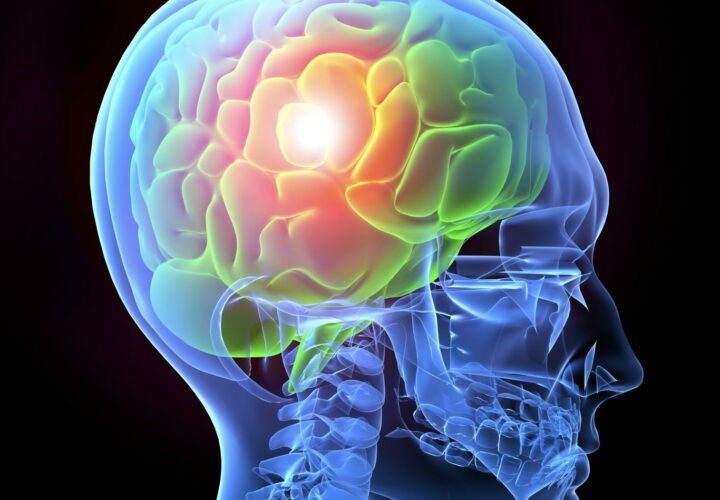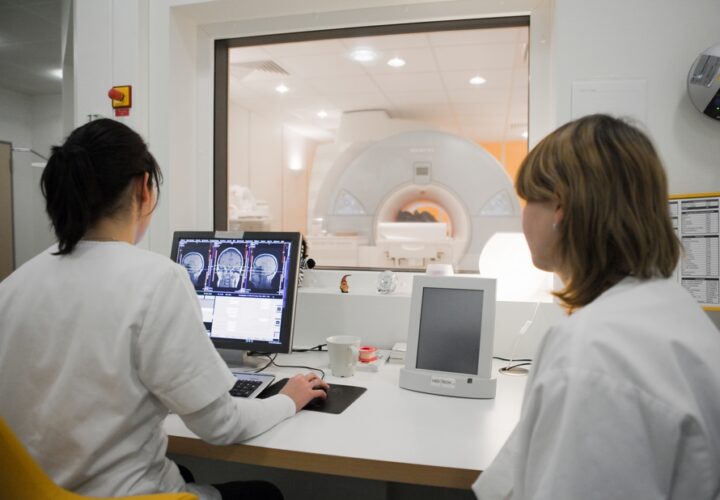Could popping a daily aspirin treat Alzheimer's? A review of the latest research on anti-inflammatories and a cure for Alzheimer's disease.
Could an aspirin a day keep dementia away? A new study has added to the list of evidence that anti-inflammatories like aspirin might be able to reduce the accumulation of beta-amyloid, the protein that forms into plaques in Alzheimer’s disease, in the brain. Researchers found that mice given the over-the-counter drug were better able to remove the build-up of protein waste from the brain.
Researchers at Rush University Medical Center wanted to study the connection between Alzheimer’s and anti-inflammatories, since previous studies have found a potential link between taking a daily pill and lowering Alzheimer’s risk. They gave a daily dose of aspirin to mice who were genetically engineered to have Alzheimer’s plaques in their brains.
They found that the mice given the anti-inflammatory showed a shrinkage in beta-amyloid plaques. Most importantly, they were able to see how the aspirin got rid of the plaques. By increasing the presence of another protein called TFEB and stimulating lysosomes, which contain enzymes that protect the cell against bacteria or virus, the aspirin dose seemed to kickstart the process that helps clear the brain of plaque.
But is the cure for Alzheimer’s really as simple as popping an aspirin? While these results are promising, researchers warn that it doesn’t mean taking an anti-inflammatory will cure Alzheimer’s patients. The problem is that we don’t know exactly what causes Alzheimer’s; even though the plaques are present in people with symptoms of Alzheimer’s, clearing them has not cured people in the past. And some people have the plaques and no symptoms.
The leading hypothesis in Alzheimer’s research that is driving most drug development is called the “amyloid hypothesis”—the idea that plaques cause the disease. However, a number of recent failed trials that target the plaques has led some to doubt whether the plaques are the right target.
While the results of this study are significant and encouraging, since they revealed how aspirin reduces plaques, there are limitations. Mice don’t actually get Alzheimer’s—they’re genetically engineered to have the plaques—so what works for them might not work in people. And secondly, aspirin trials have already been conducted on people with Alzheimer’s, and they didn’t make a difference. In fact, the trial had to be stopped because of stomach bleeding in some patients. In another study, aspirin use increased the risk of brain hemorrhaging. But other studies have shown that non-steroidal anti-inflammatory (NSAID) drugs do have a modest positive effect on the development of Alzheimer’s.
This conflicting information means that there is a lot more research to be done before the benefits can be tested in humans. “Understanding how plaques are cleared is important to developing effective drugs that stop the progression of Alzheimer’s disease,” said study author Kalipada Pahan. “More research needs to be completed, but the findings of our study has major potential implications for the therapeutic use of aspirin in AD and other dementia-related illnesses.”
This study was published in the Journal of Neuroscience.



Very interesting. I would wish to continue with Aspirin medication for the time being until further research proves it’s benifits are of no help in relation to Alzheimer’s and dementia.
I have been having pain in the same place in my head for some time and have been taking low doses of asprin for 2 months, having read that it could be useful in treating this if it turns out to be dementia of some sort. Are there any other drugs that may help. I would be greatful if anyone has info to pass on. J